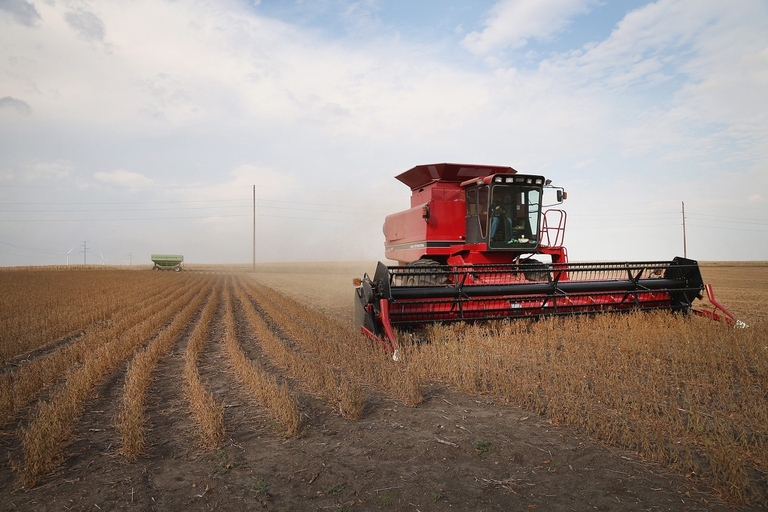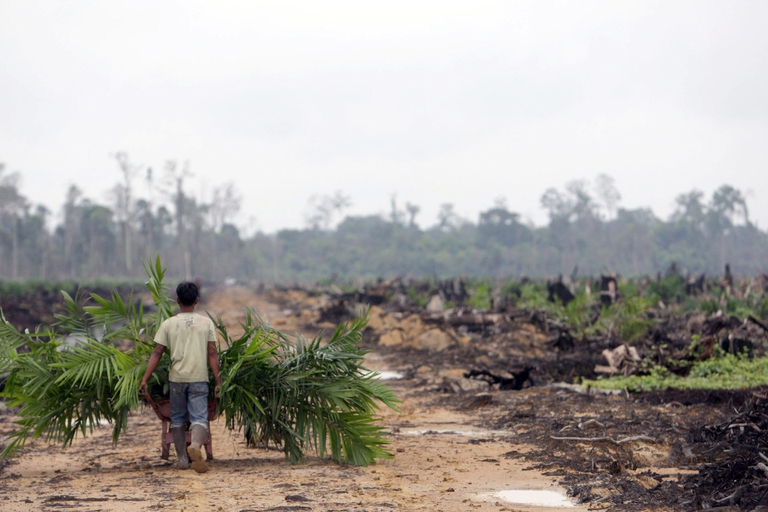
A report by Ember explains that in 2025 electricity generation from renewables (solar, wind and hydropower) surpassed that from fossil fuel sources.
Due to the coronavirus pandemic, Earth Overshoot Day 2020 falls on 22 August, over three weeks later than in 2019. A blessing in disguise?
Overshoot Day is always a troubling event. As the years go by, it’s coming sooner and sooner, reminding us of humanity’s failings. Our greed and insatiable hunger cause us to consume more resources than the Earth is capable of offering us, with no regard for future generations or respect for the other living beings who share the planet with us.
This year, we’ve faced one of history’s harshest lessons: the pandemic caused by the novel SARS-CoV-2 coronavirus – whose emergence is tied to habitat loss caused by human activities – is decisive proof that the lifestyle we’re leading is dangerous for ourselves and the world we live in. Our species has been forced to face up to its mistakes, take a step back and let nature recover. Consequently, the air has become cleaner, and flora and fauna have started repopulating areas abandoned long ago.
Therefore, in the eight months since the beginning of the global emergency, human beings have consumed fewer resources than in recent years. We’ve polluted less, destroyed fewer habitats, and perhaps even found some of that sense of belonging to the natural world that we’d lost over the years. And, for the first time in a while, Overshoot Day falls on 22nd August, halting its anticipated arrival year after year, at least for the time being.
Earth Overshoot Day is the date in which humanity’s consumption of renewable resources exceeds Earth’s capacity to regenerate those resources over the course of a year. The date changes from year to year, depending on how rapidly resources are consumed. The Global Footprint Network (GFN), an international organisation that focuses on environmental accountability, is responsible for establishing when Overshoot Day falls.
Furthermore, Earth Overshoot Day as described so far is distinguished from national Overshoot Days. These are the dates when individual countries exhaust their resource quotas. In Italy, for example, Overshoot Day fell on the 14th May 2020, although the date might be revised to account for the impact of the coronavirus lockdown.
At the moment, the global population is consuming the equivalent of 1.6 planets’ worth of resources per year. Estimates suggest this figure could rise to two planets by 2030. But, obviously, we only have one planet at our disposal. In the early 1970s, humanity began consuming more resources than the Earth was able to regenerate in twelve months and since then, the day we “overshoot” this limit has kept coming earlier: in 1975, it was the 28th of November, for example. The growth of the global population and consumption rates are the main factors that determine this trend.
Earth Overshoot Day 2020 falls three weeks later than in 2019, when it was on the 29th of July. “The date reflects the 9.3 per cent reduction of humanity’s Ecological Footprint from the 1st of January to Earth Overshoot Day compared to the same period last year, which is a direct consequence of the coronavirus-induced lockdowns around the world,” according to a GFN press release: “Decreases in wood harvest and CO2 emissions from fossil fuel combustion are the major drivers behind the historic shift in the long-term growth of humanity’s Ecological Footprint”.
Carbon emissions have decreased by 14.5 per cent compared to 2019, while the consumption of forest resources has fallen by 8.4 per cent.
Unfortunately, however, this reduced ecological footprint doesn’t reflect an intentional trend reversal. “Humanity has been united by the common experience of the pandemic and shown how intertwined our lives are,” in the words of Global Footprint Network CEO Laurel Hanscom. “At the same time, we can’t ignore the deep unevenness of our experiences nor the social, economic, and political tensions which have been exacerbated by this global disaster. Making regeneration central to our rebuilding and recovery efforts has the potential to address the imbalances both in human society and in our relationship with the Earth”.
Earth Overshoot Day 2020 forces us, more than ever, to reflect on the “new normal” we want to, and must, live with from now onwards. Covid-19, the disease caused by the novel coronavirus, has shown that when confronted with an emergency human beings are capable of slowing down and changing their lifestyles, consumption patterns and the choices they make each day. And, as the GFN points out, “governments are capable of acting swiftly, both in terms of regulations and spending, when they put human lives above all else”. The hope now is that humanity will really see this recovery phase as a chance to write a new future, for ourselves and for the planet.
Siamo anche su WhatsApp. Segui il canale ufficiale LifeGate per restare aggiornata, aggiornato sulle ultime notizie e sulle nostre attività.
![]()
Quest'opera è distribuita con Licenza Creative Commons Attribuzione - Non commerciale - Non opere derivate 4.0 Internazionale.
A report by Ember explains that in 2025 electricity generation from renewables (solar, wind and hydropower) surpassed that from fossil fuel sources.
The Tyler Prize, considered the “Nobel Prize for the Environment,” has been awarded to Toby Kiers, an American biologist working in Amsterdam.
Belgium is one of the countries most exposed to climate change. Dune–dikes are a solution to curb sea-level rise.
Between October 2024 and September 2025, the average temperature in the Arctic was 1.6 degrees Celsius higher than during the 1991–2020 period.
Undeclared conflicts of interest, paid authors, lack of transparency: one of the most cited studies on glyphosate, published in 2000, has been retracted.
The Copernicus service has released data for the first eleven months of 2025: global warming is set to come close to last year’s record.
The European Council and Parliament have reached an agreement on the European Commission’s proposal to deregulate new GMOs. But farming, organic agriculture, and environmental organizations are calling for it to be stopped.
The world’s second-largest producer has taken a historic decision. However, farms will have until 2034 to shut down.
A Greenpeace report denounces Russia’s political and economic model: a nexus of extractivism, authoritarianism and war that is destroying the environment, with serious repercussions for the global ecosystem.









